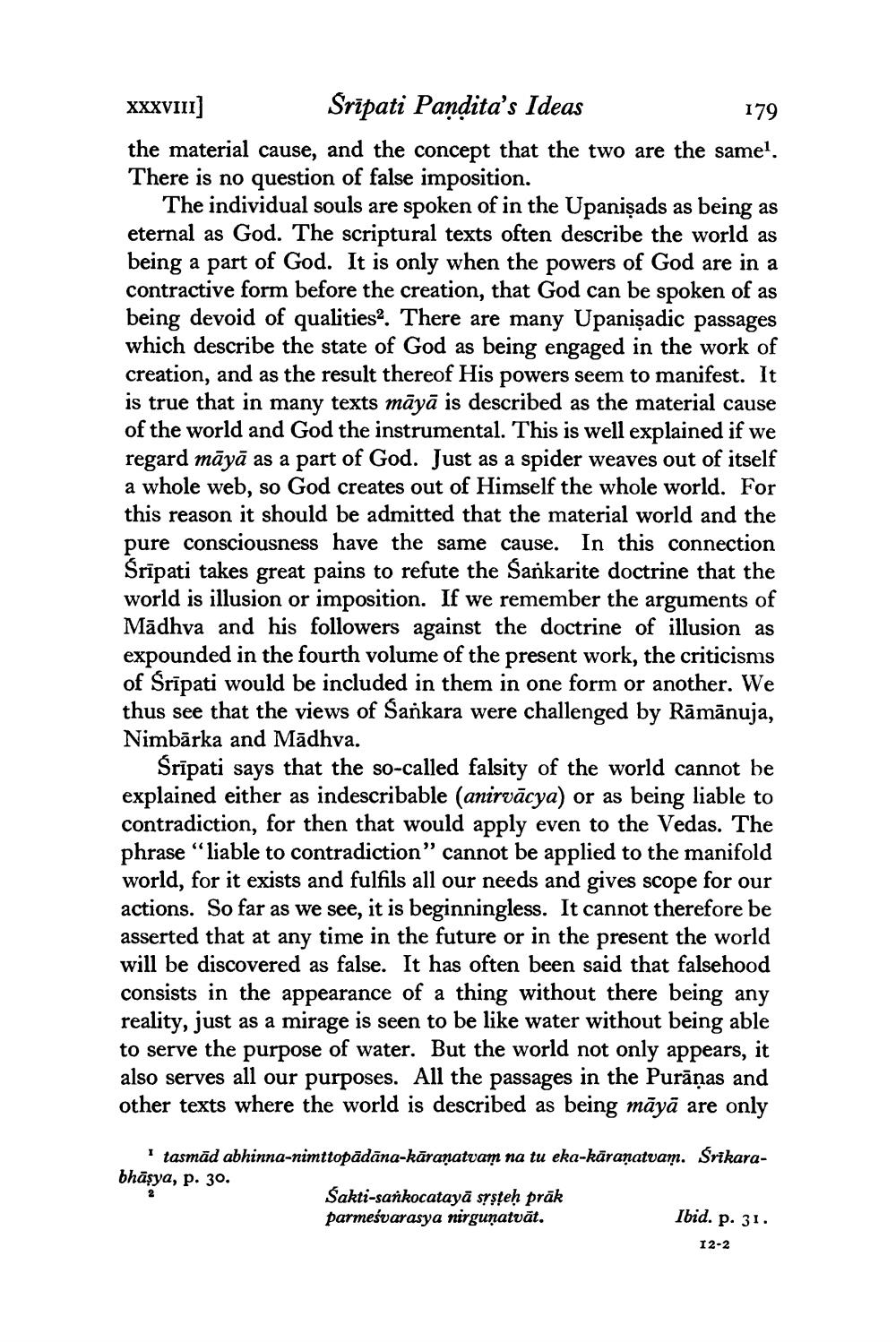________________
XXXVIII] Srīpati Pandita's Ideas
179 the material cause, and the concept that the two are the samel. There is no question of false imposition.
The individual souls are spoken of in the Upanişads as being as eternal as God. The scriptural texts often describe the world as being a part of God. It is only when the powers of God are in a contractive form before the creation, that God can be spoken of as being devoid of qualities. There are many Upanişadic passages which describe the state of God as being engaged in the work of creation, and as the result thereof His powers seem to manifest. It is true that in many texts māyā is described as the material cause of the world and God the instrumental. This is well explained if we regard māyā as a part of God. Just as a spider weaves out of itself a whole web, so God creates out of Himself the whole world. For this reason it should be admitted that the material world and the pure consciousness have the same cause. In this connection Śrīpati takes great pains to refute the Sankarite doctrine that the world is illusion or imposition. If we remember the arguments of Mādhva and his followers against the doctrine of illusion as expounded in the fourth volume of the present work, the criticisms of Sripati would be included in them in one form or another. We thus see that the views of Sankara were challenged by Rāmānuja, Nimbārka and Mädhva.
Śrīpati says that the so-called falsity of the world cannot be explained either as indescribable (anirvācya) or as being liable to contradiction, for then that would apply even to the Vedas. The phrase "liable to contradiction” cannot be applied to the manifold world, for it exists and fulfils all our needs and gives scope for our actions. So far as we see, it is beginningless. It cannot therefore be asserted that at any time in the future or in the present the world will be discovered as false. It has often been said that falsehood consists in the appearance of a thing without there being any reality, just as a mirage is seen to be like water without being able to serve the purpose of water. But the world not only appears, it also serves all our purposes. All the passages in the Purāņas and other texts where the world is described as being māyā are only
tasmād abhinna-nimttopādāna-kāranatvam na tu eka-kāraṇatvam. Śrikarabhāşya, p. 30.
Sakti-sankocatayā systeh prāk parmeśvarasya nirgunatvät.
Ibid. p. 31.
I 2-2




